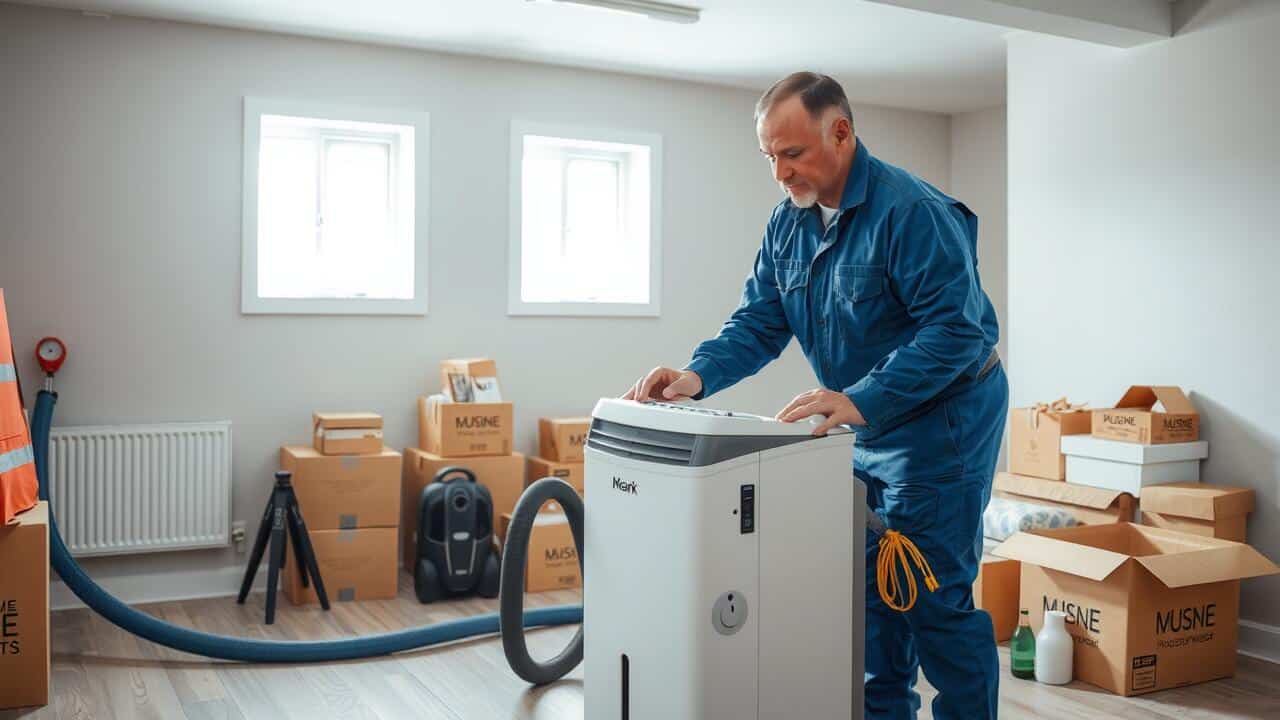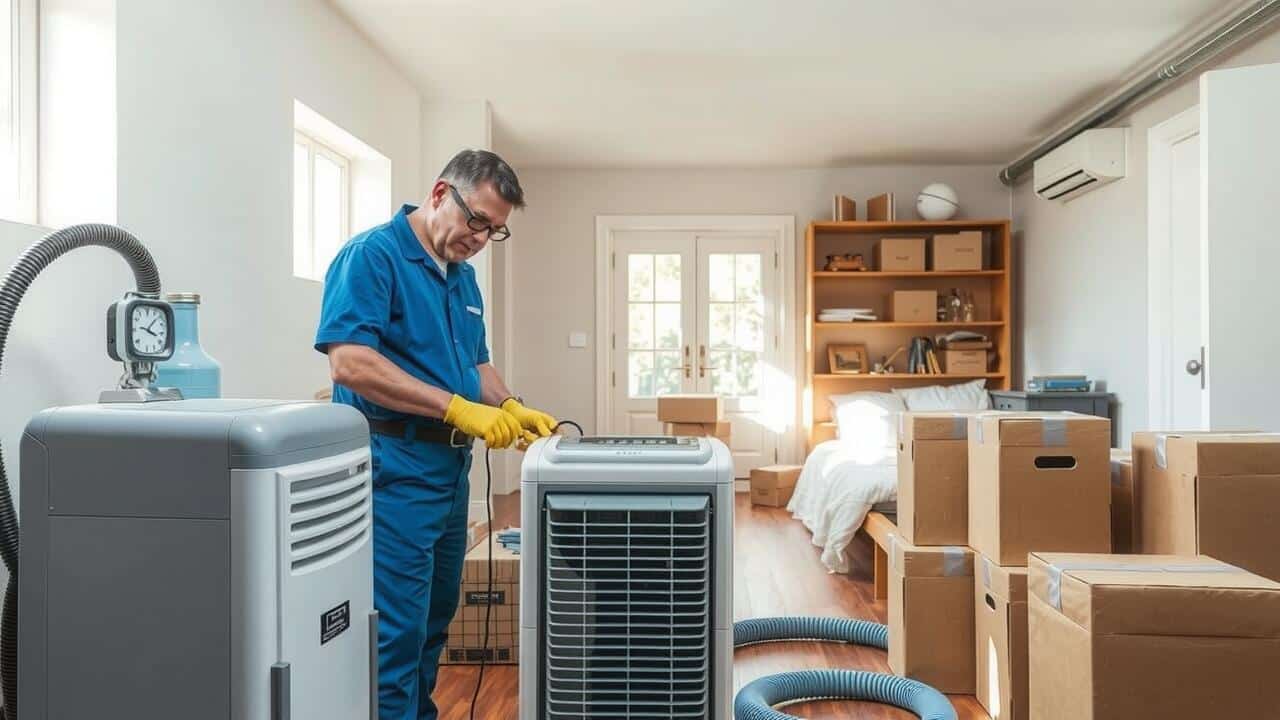
Table Of Contents
Dehumidification and Home Maintenance
Dehumidification plays a crucial role in maintaining the structural integrity of homes. Excess moisture in the air can lead to the growth of mold and mildew, which not only results in unsightly stains but can also compromise the health of occupants. Wood and other building materials may warp or rot when exposed to high humidity levels over time. Regular dehumidification can help keep moisture levels in check, ultimately extending the lifespan of a home’s structure.
In addition to protecting the physical aspects of a house, dehumidification contributes to a healthier indoor environment. High humidity can exacerbate allergies and respiratory issues, making it uncomfortable for residents. By controlling humidity levels, homeowners can create a more pleasant living space that promotes overall well-being. Investing in dehumidification systems can reduce the risk of humidity-related problems, benefiting both the home’s structure and the health of its inhabitants.
Preventing Structural Damage
Excessive moisture in the air can lead to a host of structural problems in homes, often manifesting as mold growth or wood rot. Dehumidification plays a crucial role in maintaining optimal humidity levels, which helps to protect wooden structures, walls, and ceilings from water damage. By reducing humidity, homeowners can mitigate the risk of structural issues that often arise from prolonged exposure to damp conditions.
A well-maintained moisture level also prevents condensation build-up, which can weaken building materials over time. Dehumidification devices effectively pull excess moisture from the air, creating a more stable environment for the home’s infrastructure. This proactive approach not only preserves the integrity of the property but also reduces the need for costly repairs associated with water damage.
Benefits for Sleep Quality
Dehumidification can play a significant role in enhancing sleep quality. High humidity levels tend to make the air feel heavy and stuffy, which may lead to discomfort during the night. By removing excess moisture, a dehumidifier creates a more pleasant sleeping environment, enabling easier breathing and a more comfortable temperature.
Additionally, lower humidity levels can reduce allergens such as dust mites and mold, which thrive in damp conditions. This improvement in air quality may contribute to a decrease in allergy-related disturbances during sleep. With fewer irritants present, individuals can experience deeper, more restorative sleep, leading to overall better health and well-being.
How Humidity Influences Sleep Patterns
Humidity plays a significant role in sleep quality. High levels of moisture in the air can lead to discomfort, making it difficult to fall asleep or stay asleep. When the air feels heavy and clammy, it can disrupt the body’s natural cooling processes, which are essential for a good night’s rest. Excess humidity can also lead to respiratory issues or allergies, further complicating the ability to relax and unwind before bedtime.
Dehumidification helps to create a more comfortable sleeping environment. By reducing the moisture in the air, it lowers the temperature and promotes better air circulation. This process can lead to an improvement in overall sleep patterns, allowing individuals to experience deeper and more restorative rest. A drier atmosphere can also mitigate potential sleep disturbances caused by allergens and irritants prevalent in humid conditions.
Energy Efficiency and Dehumidification
Dehumidification plays a crucial role in enhancing energy efficiency within homes. High humidity levels force air conditioning systems to work harder, which can lead to increased energy consumption. By reducing humidity, dehumidification allows these systems to operate more efficiently, maintaining a comfortable indoor climate with less energy expenditure. Homeowners often notice a decrease in their monthly utility bills after implementing dehumidification solutions.
In addition to benefiting energy costs, dehumidification can improve overall air quality. Excess moisture can lead to mold growth and dust mites, which not only impact health but also contribute to higher energy usage through HVAC systems reacting to perceived discomfort. A well-dehumidified environment minimizes these issues, leading to a healthier living space and more efficient heating and cooling operations. This combination of advantages makes dehumidification a valuable consideration for any homeowner seeking to optimize their energy efficiency.
Reducing Energy Costs in Humid Environments
Dehumidification plays a crucial role in enhancing energy efficiency, especially in regions characterized by high humidity levels. Excess moisture in the air forces air conditioning systems to work harder, consuming more energy to maintain comfortable indoor temperatures. By utilizing a dehumidifier, homeowners can minimize humidity, allowing their cooling systems to operate more efficiently and effectively. This reduction in workload can lead to significant cost savings on energy bills over time.
Implementing dehumidification not only improves indoor comfort but also preserves the lifespan of HVAC systems. When humidity levels are kept in check, these systems encounter less strain and wear. This proactive approach can decrease the frequency of repairs and extend the time between necessary replacements. Overall, opting for dehumidification contributes to a more sustainable energy strategy while simultaneously reducing costs.
FAQS
What is dehumidified air?
Dehumidified air is air that has had excess moisture removed, resulting in lower humidity levels. This process can improve comfort and reduce the risk of mold and mildew growth in indoor spaces.
How does dehumidified air help prevent structural damage?
Dehumidified air helps prevent structural damage by reducing moisture levels that can lead to the growth of mold and mildew, which can compromise the integrity of building materials and cause deterioration over time.
Can dehumidified air improve sleep quality?
Yes, dehumidified air can improve sleep quality by creating a more comfortable sleeping environment. Lower humidity levels can help regulate body temperature and reduce sweating, leading to better sleep patterns.
How does high humidity affect sleep?
High humidity can disrupt sleep by making the environment feel warmer and more uncomfortable, leading to restless nights, excessive sweating, and difficulty falling or staying asleep.
Is using a dehumidifier energy efficient?
Yes, using a dehumidifier can be energy efficient, especially in humid climates. By reducing humidity levels, it can help HVAC systems operate more effectively, leading to lower energy costs and improved comfort in the home.
